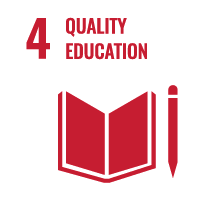Justice, Equity, Diversity, & Inclusion (JEDI)
UMass Amherst is committed to social justice. Aligned with this vision, the Libraries acknowledge the role we play in reckoning with and advancing social justice through examination of our collections, instruction, organizational culture, policies, procedures, research, spaces, structures, and systems. A JEDI Task Force is under development to address these areas.
The Libraries dedicate resources to promote and enhance the wellbeing for all our community members — especially students — by maintaining inclusive, safe, and welcoming spaces and by providing resources, services, and programs that practice, promote, and reflect justice, equity, diversity, and inclusion (JEDI).
The Libraries embody a “one library” philosophy: We are a place for all, where every person is equally valued and engaged as integral partners in the mission of creating space for all voices to be heard, respected, and valued.
The Libraries help ensure inclusive and equitable quality education and promote lifelong learning opportunities for all in support of promoting good health and wellbeing, providing quality education and reducing inequalities, numbers 3, 4, and 10 of the United Nation’s Sustainable Development Goals (SDGs).



Highlights include:
- The Libraries’ W. E. B. Du Bois Center, which activates and makes accessible the Du Bois Papers—the most used collection held in special collections—and emphasizes Du Bois’s enduring relevance to issues of justice, equity, diversity, and inclusion.
- The Robert S. Cox Special Collections and University Archives Research Center, known for its concentration of collections having to do with social change.
- Library collections, which represent the wide variety of human knowledge, ideas, and research provided on platforms that are accessible to all, removing barriers to information access.
- Spaces, which are open to all, and are co-created with students to enhance connection and belonging in an ecosystem that supports their wellbeing.
- Library staff committed to providing equitable access to all the libraries have to offer.
We invite you to learn more at the Office of Equity and Inclusion.
Accessibility Statement
The University of Massachusetts Amherst Libraries are committed to provide access and an inclusive educational experience for all students, staff, faculty, and community members.
The Libraries strive to acquire and produce accessible instructional materials, and to serve as a gateway for knowledge and connection to local disability rights, history and culture within the community.
The Libraries are home to the following:
- The Assistive Technology Center offers training and support for assistive technology tools to UMass students, faculty and staff. It is located on the lower level of the W. E. B. Du Bois Library in the Learning Commons.
- Interlibrary Loan is committed to providing the materials our patrons need as quickly as possible. We provide PDFs of articles and book chapters from the UMass Libraries and from around the world, obtain physical items from libraries outside of the Five Colleges, and mail physical items to patrons at a distance. ILL web pages and request forms are compliant with Web Content Accessibility Guidelines (WCAG).
All scans created by the UMass ILL department are provided as PDFs with one page-per-page and baseline Optical Character Recognition (OCR). Scans delivered by other libraries may have lower standards. If you receive a file with poor or missing OCR, or with any other issues, please contact us at ill@library.umass.edu. We will amend the file or get a new scan from a different source. We are currently working to implement software that would allow us to automatically perform OCR on all scans received from other libraries.
We are actively working to increase the accessibility and usability of our services. If you have any questions or suggestions, please contact us at ill@library.umass.edu.
- Reserves Services provides physical and digital course materials requested by UMass faculty for student use. Digital course materials and scanned documents are produced as accessible PDFs, and streaming video materials are consistently provided with captioning and audio description tracks whenever possible.
- The Libraries’ Collection Priorities The Libraries will invest in and support unique and distinctive collections that strive to represent the wide variety of human knowledge, ideas and research, in its holdings and provide platforms that are accessible to all.
We do our best to ensure the Libraries’ resources are accessible and provide reasonable accommodations according to the Americans With Disabilities Act.
Should you require accommodations for the Libraries’ services or materials, please contact:
- For students, Disability Services
- For faculty and staff, Accessible Workplace
- The ADA Compliance Officer
We aim towards accessibility and inclusion for people of all disabilities as it aligns with the values of the Libraries and the University of Massachusetts Amherst https://www.umass.edu/accessibility/